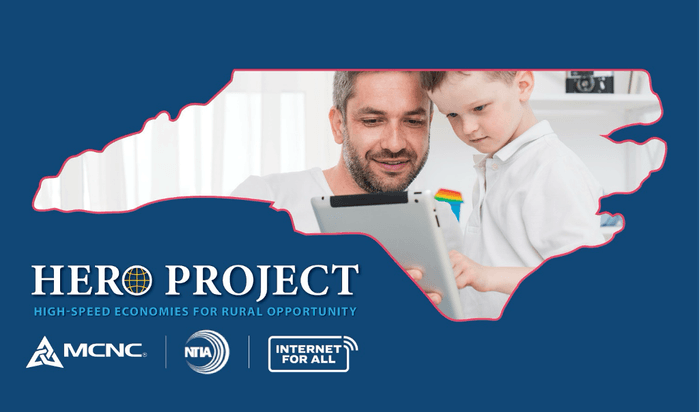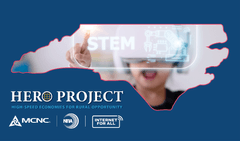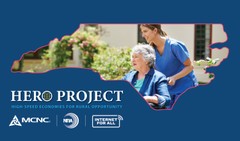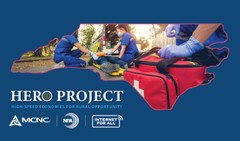HERO Project: Digital deserts raise concern for kids in rural communities

Limited or no internet access is a major concern for parents in rural communities. Inadequate educational resources, reduced exposure to culture and information for social growth, and the lack of communication are just a few of the inequalities faced by many who lack reliable and affordable broadband. MCNC’s HERO Project aims to close the digital divide to better support childhood development in these unserved and underserved areas in North Carolina.
Equality in Education
Online learning platforms, educational apps and interactive websites are crucial for modern education. Children in digital deserts miss out on these valuable tools, potentially hindering their cognitive development, literacy and numeracy skills during their formative years. Studies have shown that children who don't have access to high-speed internet are more likely to lag in their reading and math skills, further widening the achievement gap between students in areas who have it and those in areas who don’t. School closures also have highlighted this issue, with children lacking internet access struggling to participate in remote learning, widening the gap even more.
Powerful Learning Combination
The idea of combining experiential learning with connectivity opens up a world of possibilities for deeper understanding, engagement and growth. When children have high-speed internet, they gain access to a range of educational content that enhances their learning experiences. They can embark on virtual field trips, receive online tutoring and engage with learning platforms, all of which contribute to a well-rounded education that goes beyond traditional classrooms. The internet also provides exposure to various cultures and information, vital for intellectual and social growth. Without it, children might have limited perspectives and understanding of the world. Lack of internet access also can hinder a child's ability to connect with others, potentially leading to isolation and loneliness.
Promoting Parental Involvement
Broadband connectivity doesn’t just directly benefit children – it also empowers parents to actively participate in their child’s educational journey. Online platforms for parent-teacher communication, virtual conferences between parents and teachers, and access to academic resources enable parents to be more involved in their child’s learning journey regardless of geographic limitations. Additionally, parents often rely on the internet to support their children by finding parenting resources or by simply connecting with other parents or groups. Limited access can hinder their ability to fully support their child's development. Finally, the lack of internet access can limit online job opportunities as well as hinder economic development in rural communities, impacting overall family well-being.
Unleashing Potential
Investing in broadband infrastructure is an investment in the future. By bridging the divide in rural communities, we equip the next generation with the tools they need to thrive in an increasingly digital world. Improved early childhood development forms the basis, for an educated. skilled and resilient workforce, ultimately benefiting the entire community. We cannot underestimate the significance of having a broadband connectivity when it comes to childhood development. It's not, about linking communities to the internet; it's about unleashing the full potential of each and every child despite where they live. Closing the divide and reducing digital deserts is a responsibility that we all share as we chart a path towards a more promising and fairer future.




















